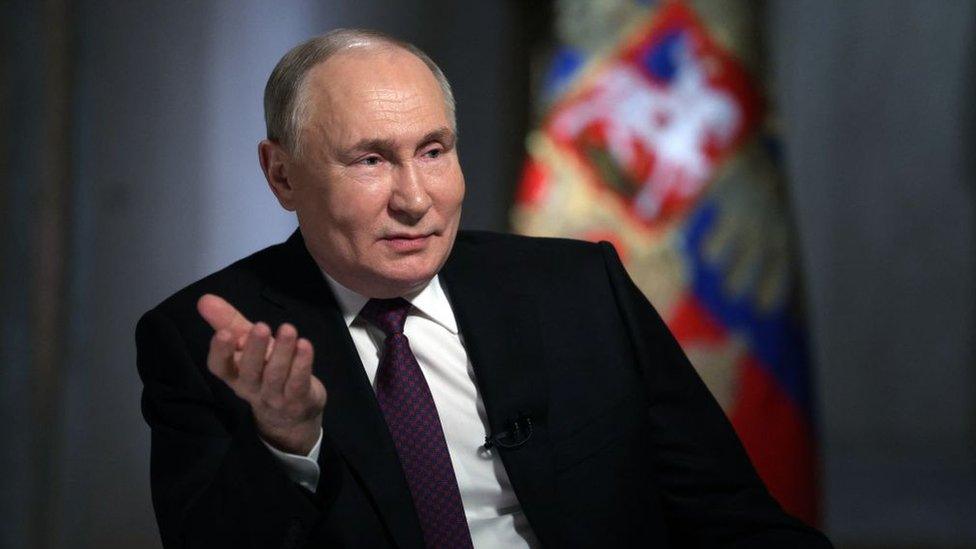Russian journalists in shock as FSB hunts enemy within
- Published
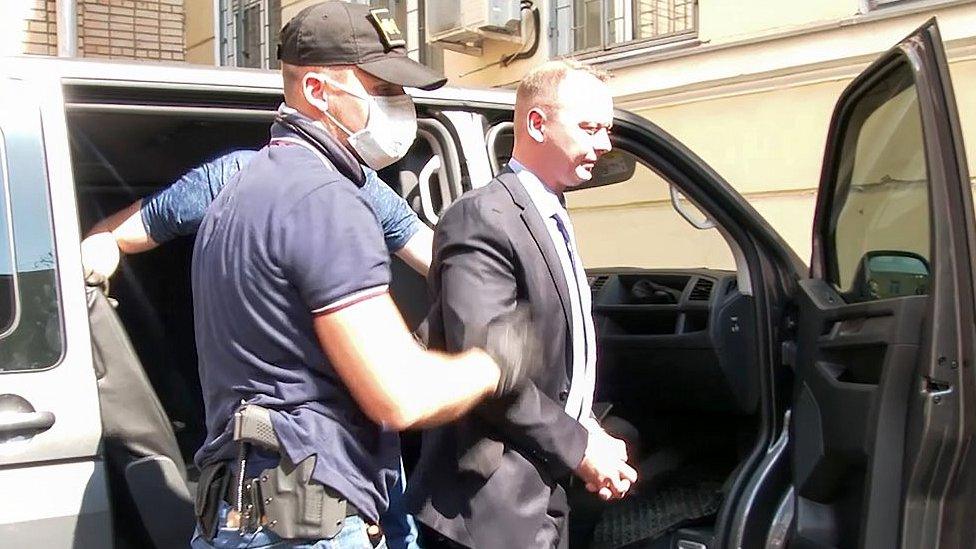
The FSB released images of their arrest of Safronov in Moscow
As Ivan Safronov was led into court, hands cuffed and head pushed down by two masked guards, he managed just one sentence. "I'm not guilty," he told a crowd of supporters packed into the corridor.
The arrest of the former military correspondent has shocked fellow Russian journalists, who describe the claim by the FSB security service that he handed state secrets to Czech Intelligence as "absurd".
The Kremlin has praised the '"high quality" work of Russian counter-intelligence but none of the evidence of Ivan Safronov's "betrayal" has been made public.
So some fear his arrest is a show of force by the FSB amid a surge in detentions for treason and espionage so great it's prompted talk of "spy mania".
'Putin doesn't care what anyone thinks'
"My first thought was that I'd gone back two decades in a time machine," says Grigory Pasko, recalling his own prosecution in 1997 - the last time a Russian journalist was charged with treason.
Mr Pasko was also a military correspondent and he'd written extensively about environmental violations by the Russian navy. Initially cleared of passing classified information to Japan, he was sentenced to four years at a 2001 retrial.
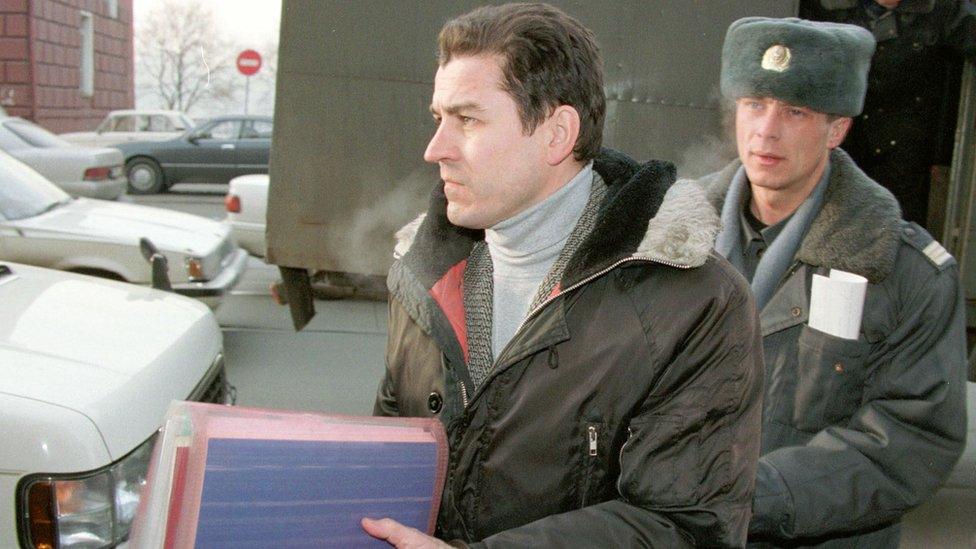
Mr Pasko's jail sentence in 2001 prompted an international outcry
The affair sparked a public outcry both at home and abroad and he was eventually released on parole.
"I think they were afraid to touch journalists after that," Mr Pasko told the BBC this week.
"Back then, Russia had an international reputation. It was included in international structures and cared about the world's opinion," he argues.
"Now Vladimir Putin's been in power for 20 years and he doesn't care what anyone thinks," he says, pointing out that Russia's president just amended the constitution to give himself two more terms in the Kremlin.
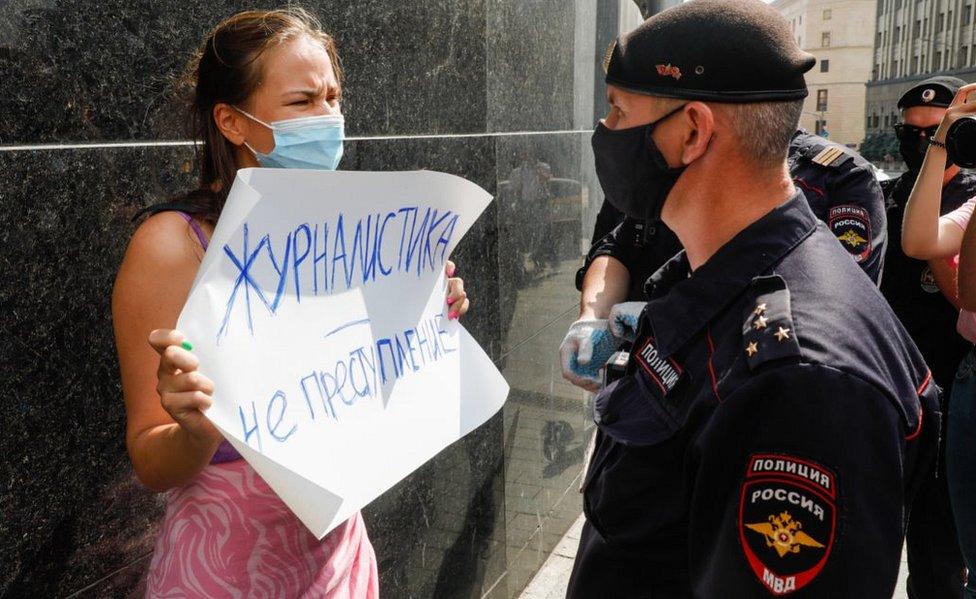
Journalists protested last week in support of Ivan Safronov. The sign says "Journalism is not a crime"
"There are no brakes now; no restraints. They can do what they want, how they want and to whomever they want," he believes.
Despite official insistence that Mr Safronov's case is not linked to his journalism, Grigory Pasko suspects he's been arrested - like him - for touching on one too many sensitive topics.
"It's like a warning to journalists not to poke their noses in."

What next for Putin after 20 years?
Will Putin rule Russia forever? A look at his 20 years in power (video from 2020)

How Russia has stepped up its hunt for enemies
Prosecutions for spying and treason have increased significantly since 2014, when relations with the West became openly hostile following Russia's annexation of Crimea.
From four people tried for treason in 2013, the number leapt to 15 the following year, according to statistics from the Supreme Court. There have been at least 36 additional prosecutions since then and 14 foreigners convicted of espionage.
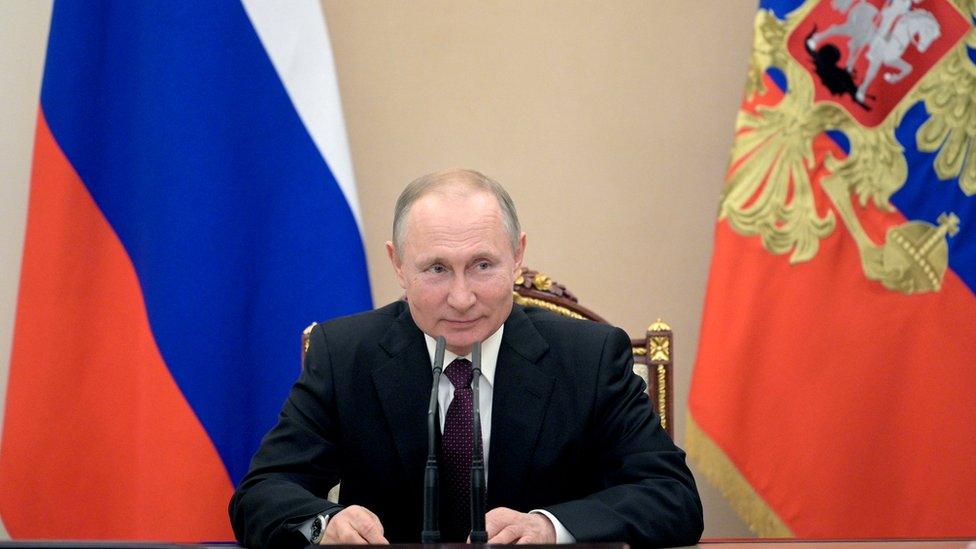
Each year, President Vladimir Putin publicly congratulates intelligence officers with unmasking hundreds of spies and foreign agents, though it's unclear what happens to them all.
"The statistics show that the activity of foreign intelligence agencies in our country is not diminishing," the former FSB boss stressed in February, instructing officers to protect "information on the latest weapons systems…military technology and innovations".
Was anyone really a spy?
"Since 2014, we've been in a permanent state of war, with 'enemies' all around and society has become very militaristic," argues Ivan Pavlov, defence lawyer for Ivan Safronov.
In years working on such cases, including defending Grigory Pasko, he told the BBC he hadn't met "a single real spy".
"Catching enemies is the work of the FSB and if they can't find any real ones, they need to invent them so they go for the low-hanging fruit," the lawyer believes.
Mr Pavlov argues that the easiest targets are those with access to information and contact with foreigners.
"Scientists were already at risk; now journalists have fallen into that group, too."
What's secret?
The risk increased in 2012 when the law on treason - Article 275 - was amended.
Now, giving "financial, material, consulting or other assistance" to a foreign state or organisation can be prosecuted if it's judged damaging to Russia's security.
"It meant they could go after everyone," says journalist and human rights activist Zoya Svetova. "It's only the second time in 20 years they've tried a journalist for treason but the spy mania never stopped," she says, and lists a housewife, air traffic controller and multiple scientists among those who've faced charges in recent years.
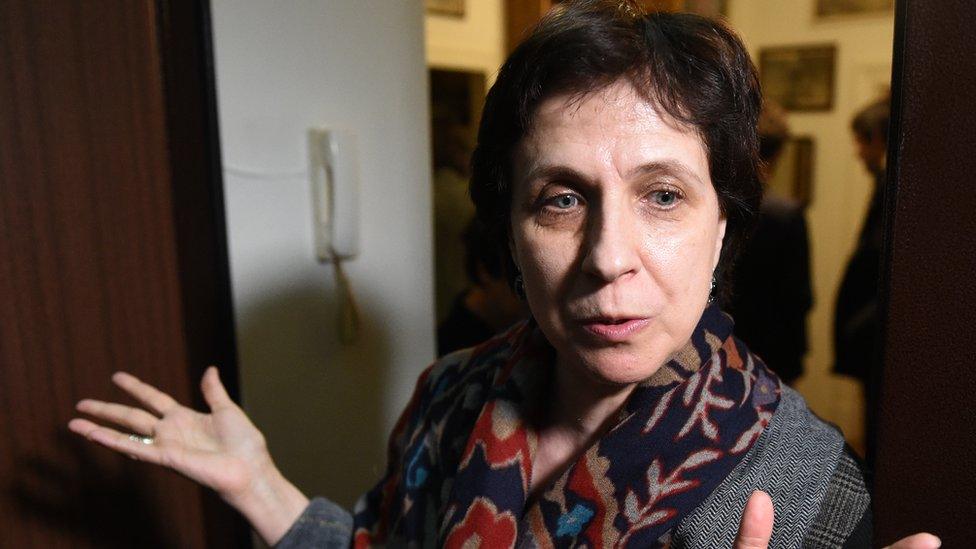
Zoya Svetova's own flat was searched by the FSB in 2017
"Lefortovo [FSB prison] is full of 'spies' and 'traitors'."
The Kremlin denies Russia is in the grip of any "mania".
"Foreign intelligence services are not dozing in Russia: they work day and night against Russian civil servants and intelligence agents," spokesman Dmitry Peskov told the BBC on Friday.
"Our counter-intelligence agents are not dozing either, to counteract their activity."
He's called protests against the arrest of Ivan Safronov "emotional".
But the veil of secrecy thrown over such cases makes them notoriously hard to evaluate.
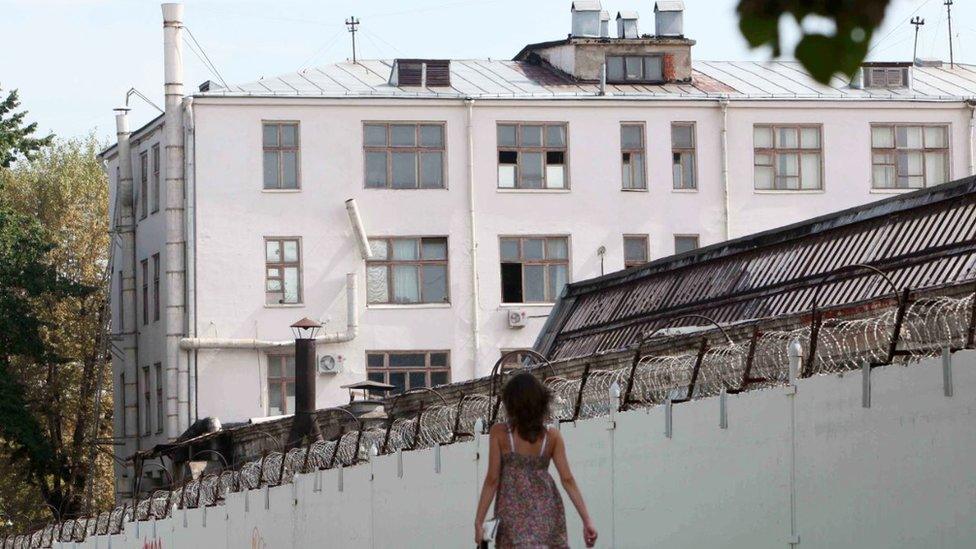
Lefortovo jail in Moscow is where FSB prisoners are held
Those involved are barred from disclosing details and trials are held behind closed doors, formally because of the classified data involved.
Even the journalist's defence team don't know yet what the charge is based upon.
"When you catch a real spy, you show evidence to the whole world: usually money, maybe a flash drive. It's good FSB propaganda, to show their use to society and their power," believes Gennady Gudkov, a former Soviet counter-intelligence officer turned opposition politician.
"In Safronov's case we see nothing of that kind. It's very strange and suspicious."
Sending a message?
Ivan Pavlov says a lot has changed since the days when public pressure helped Grigory Pasko - even against the powerful FSB.
"It will be harder for us now," he says, with a court system that acquits in fewer than 1% of cases.
When journalists protested in support of Ivan Safronov outside the FSB headquarters, more than two dozen were detained.
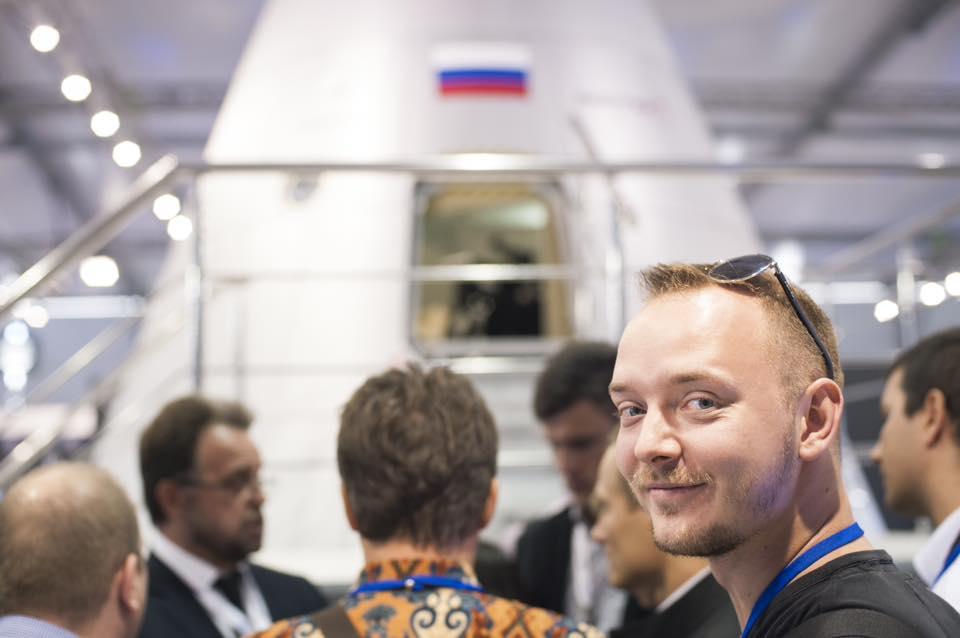
Mr Safronov had been working for Russia's space agency
State media, which once came out in support of Mr Pasko, have since reported extensively and enthusiastically on Russia's "enemies".
"Those arguments are to convince Putin's electorate that they were right to choose him for life," Grigory Pasko himself believes, referring to this month's constitutional reform.
"The message is: only Putin can save us from eternal enemies and spies - including journalists."
- Published17 March 2024
